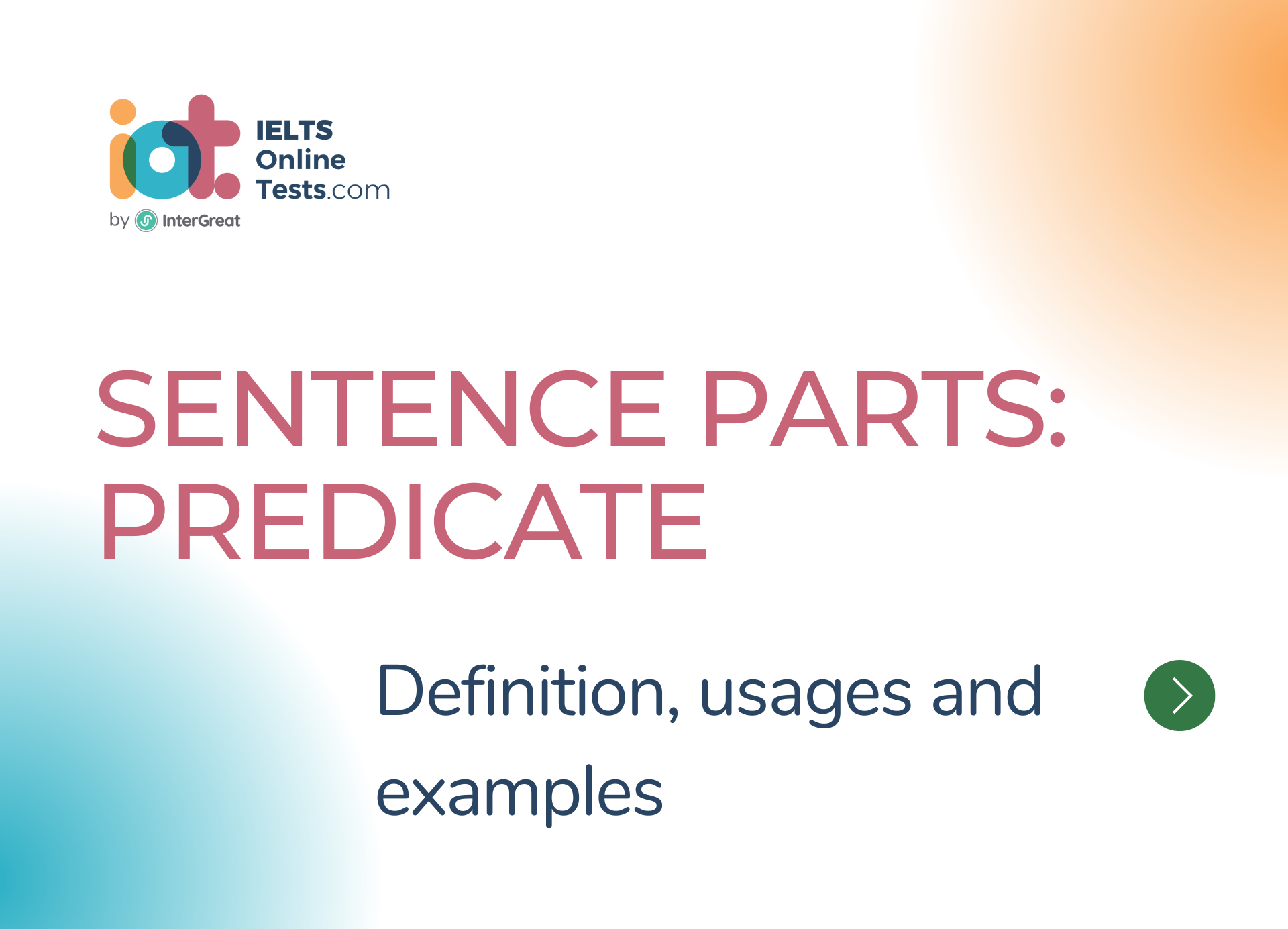
Sentence Parts: Predicate
The predicate is an essential component of a sentence, working together with the subject to provide information about the action, state of being, or relationship expressed in the sentence.
Here are some important points about the predicate:
Definition:
The predicate is the part of a sentence that contains the verb and provides information about the subject.
It includes the verb and any accompanying words or phrases that complete the thought.
Components of the Predicate:
- Verb: The verb is the core element of the predicate. It expresses the action, state of being, or occurrence in the sentence.
- Example: "She runs every morning."
- Direct Object: The direct object is a noun or pronoun that receives the action of the verb. It completes the meaning of the verb.
- Example: "She reads a book."
- Indirect Object: The indirect object is a noun or pronoun that receives the direct object or benefits from the action.
- Example: "She gave him a gift."
- Predicate Adjective: A predicate adjective describes the subject and follows a linking verb.
- Example: "He is happy."
- Predicate Noun: A predicate noun renames or identifies the subject and follows a linking verb.
- Example: "She is a doctor."
- Adverbial Phrases or Clauses: The predicate can also include adverbial phrases or clauses that modify the verb or provide additional information about the action.
- Example: "She ran to the store yesterday."
- Verb: The verb is the core element of the predicate. It expresses the action, state of being, or occurrence in the sentence.
Verb Types in the Predicate:
- Action Verbs: Action verbs express physical or mental actions.
- Example: "He paints a picture."
- Linking Verbs: Linking verbs connect the subject to the subject complement (predicate adjective or predicate noun) and describe a state of being or condition.
- Example: "She seems happy."
- Action Verbs: Action verbs express physical or mental actions.
Verb Tenses:
The predicate is affected by the tense of the verb, indicating the time of the action or state.
It can be in the present, past, future, or other tenses depending on the context.
Understanding the predicate is important for constructing grammatically correct sentences and conveying complete thoughts. It provides the necessary information about the action, state, or relationship described in the sentence and works in conjunction with the subject to form a meaningful expression.




